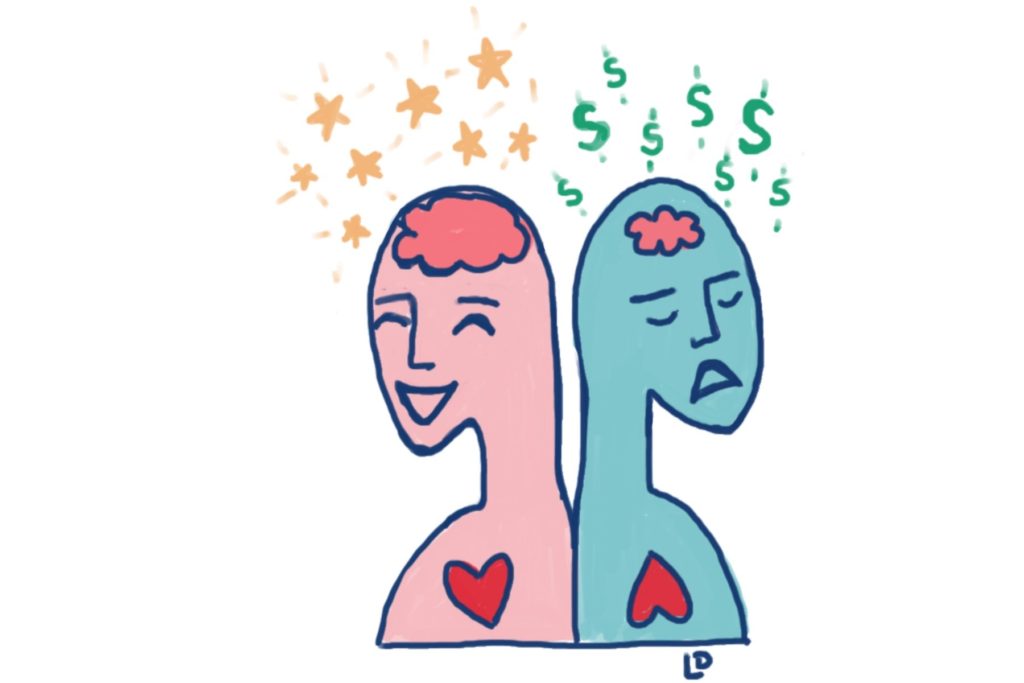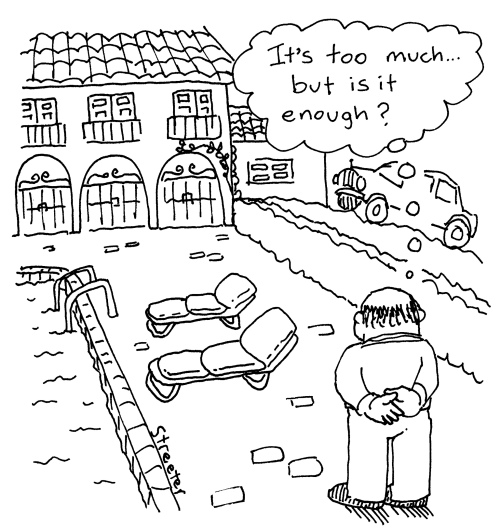
I find it difficult to take on a new hobby or activity in my life that isn’t some kind of means to an end. What I mean by that, is I can’t start drawing because it’s fun or relaxing, I have to have aspirations to be an artist. I can’t just code for fun or to learn, I have to have a goal of becoming a developer.
This goes for the vast majority of things I do outside of work, and it extends beyond leisure. Maybe it’s some kind of competitiveness that I have with myself, or maybe it’s a competitiveness I have by seeing others accomplish so much at such a young age.
Being a generalist with many interests is a double-edged sword. In some aspects, it’s great because I get to expand my horizons beyond one field or subject, and can more easily see patterns and adapt to what may come to me. On the other hand, it can be frustrating to not be a “master” in something, although I am naturally better and more interested in some things than others.
I envy those who can simply do things for fun, or for its own intrinsic value, without a goal of becoming incredible at it. It’s not necessarily a bad thing to want to be good at whatever you are doing, but it becomes a problem when it removes enjoyment from the experience and a hobby is no longer a hobby, but almost another job.
For me, I think it’s ingrained in my head that I want to try to be good at whatever I set my mind to, but there is a balance I believe I can get to where I can enjoy an activity because I enjoy the process, while having some smaller goal I can set my attention to.
What is intrinsic value?
When dealing with finance,
“Intrinsic value is a measure of what an asset is worth. This measure is arrived at by means of an objective calculation or complex financial model, rather than using the currently trading market price of that asset.”
Investopedia

This piece from the Stanford Encyclopedia of Philosophy is interesting, discussing the notion of intrinsic vs extrinsic value, and if it even exists at all.
At a basic level, something has intrinsic value when it is done for its own sake. Like I wrote above, you cook because you enjoy it, not to become a chef. You play music because it’s relaxing and fun, not to become a famous musician.
Anything can have intrinsic value, if you apply it to an activity or object. You may have heard someone answer the question, “Why do you like this thing?” with “I just like it.” Which is actually a perfectly acceptable answer, no matter how passive it may seem.
I also feel that living in a capitalist society, where to be of worth you need to be making money, could influence how people have difficulty assigning intrinsic value. Why would I do something “for fun” when I could be spending my time making more money? Or why start doing anything if my goal isn’t to become “the best’?
In my opinion, American society thrives on competition, where starting a business and making a living isn’t good enough, you have to be bigger and better than your neighbor. You have to have the more expensive car, shop at the more expensive grocery store, and have more social media followers.
Competition is a good thing, because it drives us out of our comfort zones and makes us demand more from our lives and the things we do. But just like anything, when it exceeds moderation, it can become a drug in itself, and a never-ending race between yourself and others, but it’s really between you and yourself.

How do I reach the point where I do things for their own sake?
I believe a way for me to begin applying more intrinsic value to some of the things I do, is remember why I started doing them in the first place. If I have a full-time job where I make enough money to live on, I don’t need to do anything else for monetary value. I can if I want, but it’s not required.
I’m speaking from a place of privilege of course, because there are many people who don’t have the luxury of leisure time, a hobby, or just relaxing. They have to work more than one job, take care of family, and do everything we all have to do as adult humans, which, with one full-time job is a lot.
A good start is acknowledging when something is teetering into the “competitive with myself” range, and writing down why I started doing this thing in the first place.
Setting smaller goals, and working towards those is also a good practice, instead of having a goal of becoming a “the best”, which is subjective anyway. You’ll never be undoubtedly “the best” at anything, really, so we should strive to just be better than we were yesterday.
This is all easier said than done, but without taking action, we become stagnant and complacent.
By acknowledging the problem and setting small goals, we can become better at applying intrinsic value at the things we want to, which is a skill in itself.